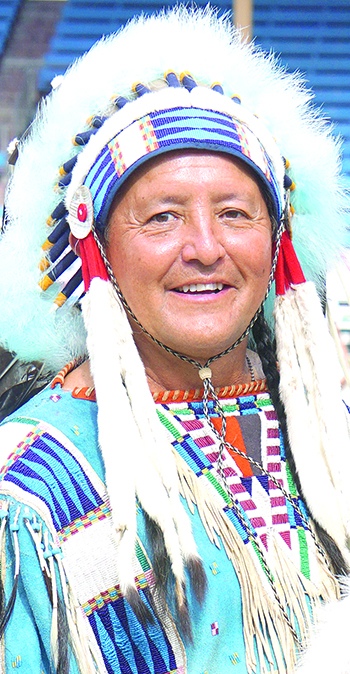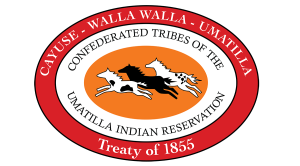By Don Sampson
Our tribes and our ancestors have been infected by deadly viruses and diseases brought to the shores of our native homeland by European immigrants since Columbus in 1492.
This onslaught of new disease spread by European immigrants amongst Native Americans resulted in millions of Native people dying in the “greatest demographic disaster in human history.” The deadliest were smallpox, malaria, viral influenza, yellow fever, measles, typhus, bubonic plague, typhoid fever, cholera, and pertussis (whooping cough).
This onslaught of new disease spread by European immigrants amongst Native Americans resulted in millions of Native people dying in the “greatest demographic disaster in human history.” The deadliest were smallpox, malaria, viral influenza, yellow fever, measles, typhus, bubonic plague, typhoid fever, cholera, and pertussis (whooping cough).
Among these, half appeared in epidemic form in Oregon and Washington during the first century of contact, from the late 1700s through the mid-1800s. This biological warfare decimated millions of Native people. There was no available treatment, a shortage of medicines, and our people had no biological resistance, genetic or acquired, to these diseases.
The loss of our population resulted in abandoned and consolidated villages, the breakdown of social and political structures, and the loss of accumulated cultural and ecological knowledge possessed by specialists within our tribes, making the epidemics cultural as well as biological disasters.
We worked together to survive those times.
Today, Americans and other countries around the world are feeling the pain and impact that our Native people have experienced and endured over the past 500 years.
Now we are facing it again.
We have had to isolate ourselves, shelter in place, be prepared to survive what our great-great grandparents endured.
Right now, hundreds of our people are without jobs and income. Our tribal elected officials must step up and provide financial and community support to our people. While much has been done, more will be needed. Our tribe built a substantial investment fund with millions of dollars – for a time like this. We have many tribal members who are suffering and struggling just to put food on the table. The most recent $300 payment was a good start and tribal members appreciate and needed that help.
This pandemic will affect us for the foreseeable future. What is our plan?
I believe the Board must re-engage and listen to tribal members during this prolonged crisis. Perhaps the Board can hold a listening session using the new internet technology “Zoom meetings” so they can hear firsthand how tribal members are impacted and struggling. Many are having difficulty getting unemployment and paying bills. Schedule three or four sessions in the next two weeks so tribal members can get online and tell the Board what they need.
As the new foods come, we must carefully consider how we continue our traditional food gathering and ceremonies. We must first and foremost protect our elders and youth.
The knowledge the elders carry is precious and treasured. They are our teachers.
In today’s world, we must try the best we can to preserve our ceremonial life, continue to gather our native foods and keep our promise to those foods. As the roots and salmon return, we must try to continue with our new food ceremonies. Even if it is within our smaller family groups.
The Board and Incident Commanders say less than 10 people in a gathering. As many elders remember, the Kow-we-yut or food ceremonies of the past were conducted by each family group. The root feasts and the washut songs were sung by family leaders – both men and women in places like Cayuse, Tutuilla flats, Fishhook, Chamna, Wallula and others. I encourage individual families – the diggers, hunters, fishers, huckleberry gatherers – to go in small family groups to gather our native foods. Seek advice from your elders in the family. But do so in a careful, protective, and deliberate way knowing we face the same deadly coronavirus our great-great grandparents may have died from. Protect the health of your family.
Just recently at Celilo, the deadly coronavirus was spread during the salmon feast. My good brother Bobby Begay, the grandson of the great Celilo Chief Howard Jim, passed because of this virus. It is a great loss to all of us. People from Warm Springs also caught the virus.
We are being taught an important lesson. We must be careful. We can’t afford to lose our cultural, spiritual, and elder leaders, our children, or anyone of our Native people during this pandemic.
Because of this, our families have decided that we will not have our regular Mother’s Day root feast in May. Rather, each small family group will hold their own Know-we-yut feast so they can go dig roots. We had our small family feast and now will go gather roots. Perhaps once this coronavirus passes, we can return to our larger ceremonial gatherings.
I pray for the strong health of our people and our traditions during this difficult time. I also pray for our elected leaders that they will be guided and think of the people first. We must work together and protect our community while continuing our traditions the best we can – carefully and deliberately.
Don Sampson, Peo Peo Mox Mox, is chief of the Walla Wallas. He is a former Chair of the Board of Trustees and General Council, and a former Executive Director for the Confederated Tribes of the Umatilla Indian Reservation.




